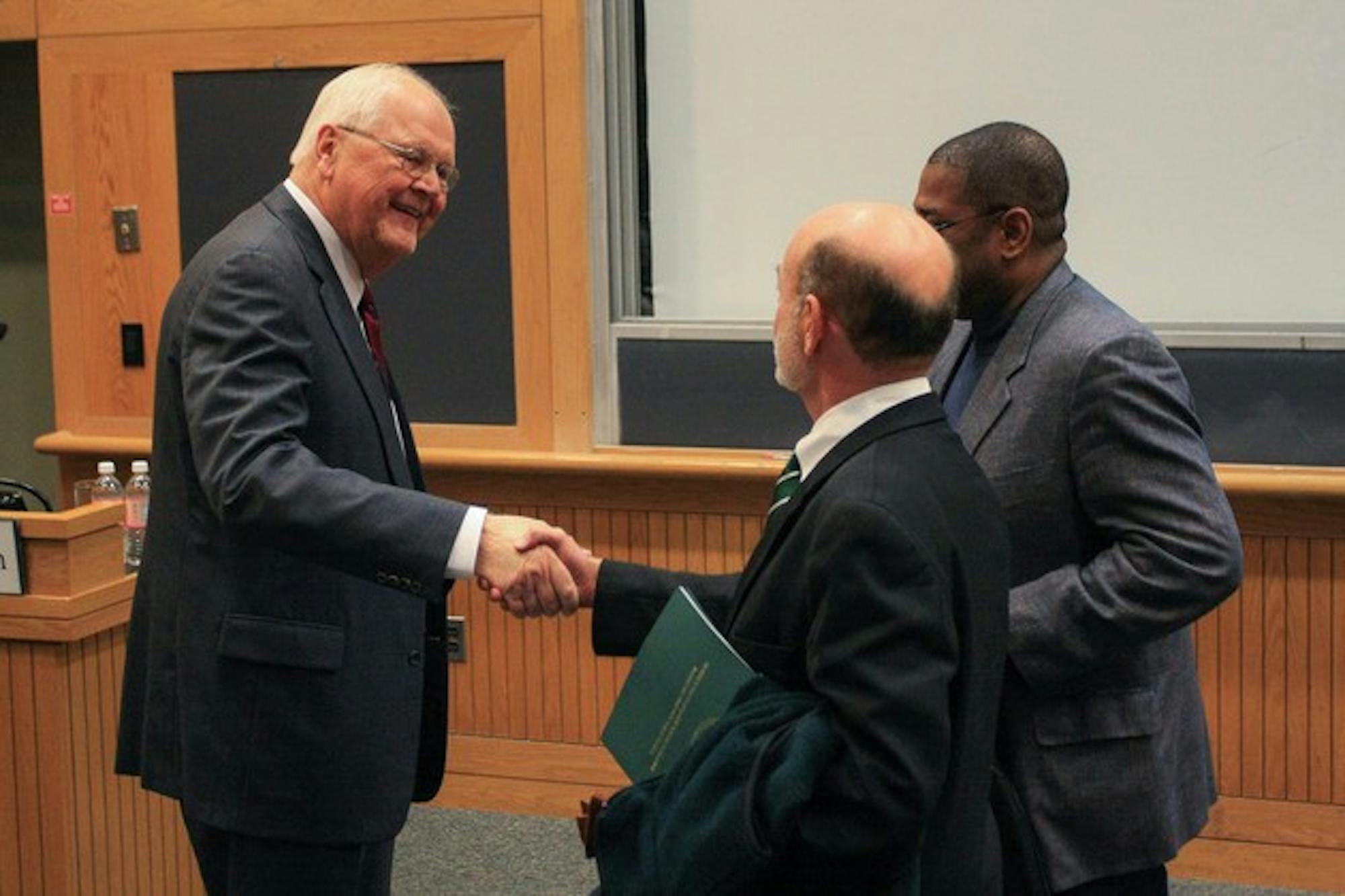When he arrived on campus in the fall of 1969, Dartmouth was an all-male institution with little diversity. Though Dartmouth's demographics have changed, it still values and encourages strong student-faculty relationships and a commitment to undergraduate teaching, he said.
During his time as president, Wright said he was glad he could provide more support for faculty and expand financial aid for students. He grew the size and compensation of Dartmouth's faculty, developed the College's capital campaign, the Campaign for the Dartmouth Experience, and oversaw expansive construction efforts on campus. The Fahey and McLane and McLaughlin residence halls were built and the Alumni Gymnasium was renovated.
His presidency was marked by the Student Life Initiative, which banned the formation of single-sex Greek organizations at the College. The SLI faced strong student and alumni backlash, including a march on the President's lawn by over 1,000 students. The ban was repealed in 2005.
After stepping down, Wright continued to write books and give lectures. He taught his last seminar during winter term.
"I came in here in the fall of 1969 as a faculty member and a teacher, and I was pleased to finish my time at Dartmouth as a faculty member and a teacher," he said.
Though Wright describes himself as an "old history teacher," his wife Susan Wright said in an email that he had once been a youthful assistant professor "fresh out of graduate school."
Government professor Benjamin Valentino, who assisted Wright in his research on American defense policies, said that Wright "lived what he researched." Wright actively promoted the rights of veterans through personal and institutional means. Wright had a knack for looking at both sides of an issue and steering the College in a way that brought the community closer together despite turbulent times, Valentino said.
"If there was a word that could describe him and his presidency, it would be reasonable," he said.
Wright was a demanding professor, said Jacques Steinberg '88, Wright's former thesis advisee and a former New York Times editor. While writing his senior thesis on reporters who covered the Vietnam War, Steinberg said Wright always pushed him to include more sources, a difficult task in the "pre-Internet" era.
"But my thesis was better for his persistence, and in the process I made a lifelong friend in him," he said.
Steinberg said one of his most memorable moments with Wright occurred after his thesis presentation, when Wright took him out to Ivy Grill, Hanover Inn's outdoor restaurant at the time. Over lunch, the two began to connect on a personal level.
"He has an unbelievable biography, probably fairly unique among Dartmouth professors, and the stories he has told me about his life have stayed with me ever since, for more than two decades," he said.
In his youth, Wright worked as a coal miner, which nformed his teaching and leadership approach.
"Sometimes institutions such as Dartmouth can lose moorings from the real world, but professor Wright grounded Dartmouth students by example, reminding them how fortunate they were to receive a Dartmouth education," Steinberg said.
David Shribman '76, another former student, said he still keeps in touch with Wright and considers him one of his greatest teachers.
During Shribman's senior year, he enrolled in Wright's class on 19th century U.S. elections. Shribman wanted to drop the class because of its heavy workload, to which Wright replied, "You know, David, I made these courses hard to scare away students, but I just didn't think I'd scare away the good ones." Shribman said the course shaped his career choices.
When he heard 25 years later that Shribman had missed the Boston Red Sox's legendary 1975 World Series game to take his midterm, Wright called him "one of the dumbest students he ever had." A baseball fan, Wright hung a Boston Red Sox jersey in his study while he lived in the president's house.
Valentino said he is sad that he will no longer be able to bump into Wright on Main Street.
"He is an institution on campus, because he didn't seem to stand apart from the rest of the institution, so we'll miss that," he said.
Religion professor Nancy Frankenberry said in an email that Wright and his wife will never "really" retire from the College.
"They will be invited to every Convocation, to every Commencement ceremony, to everything official Dartmouth conducts," she said.




